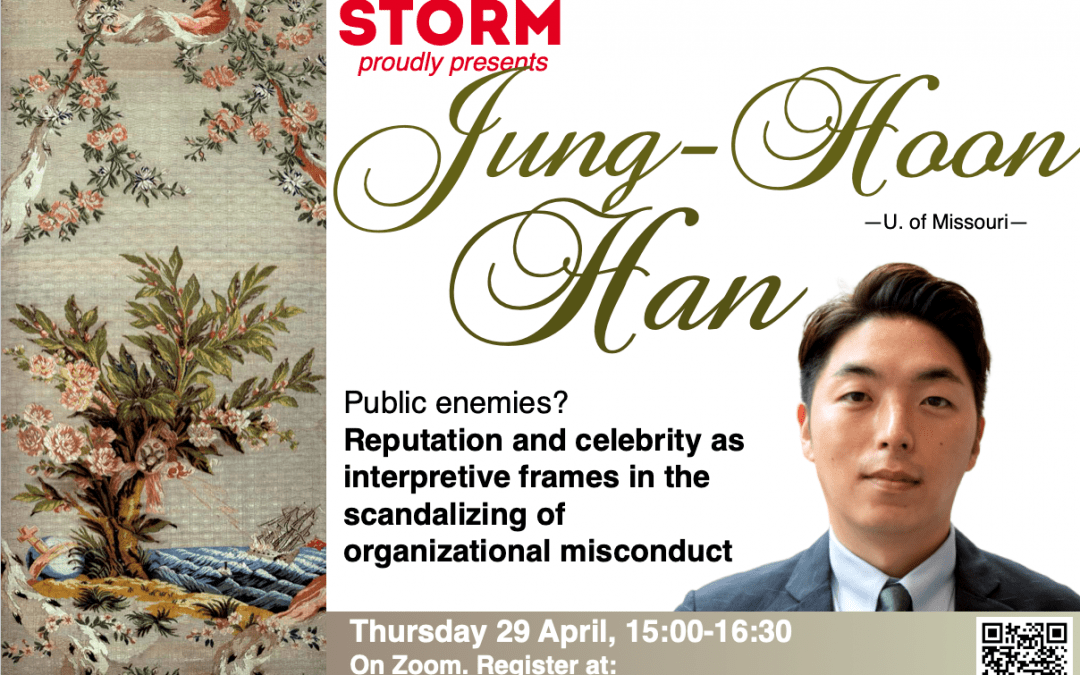Public enemies? Reputation and celebrity as interpretive frames in the scandalizing of organizational misconduct
We examine the role played by social evaluations in why only some instances of misconduct are widely publicized, and ultimately scandalized. Despite the long-held recognition that social evaluations such as reputation and celebrity bring publicity to firms’ misconduct, scholars have not considered how their influences may differ. We argue that the difference in the effects of reputation and celebrity stems from their differential effects in framing the media’s interpretation of misconduct severity. Specifically, the dominant rational aspect of reputation’s sociocognitive content directs attention to the misconduct’s ramifications for future performance, while the emotional arousal from misconduct stimulates celebrity’s dominant emotional aspect. Our findings studying corporate data breaches confirmed that reputation amplified the positive effect of breach severity—in terms of the number of accounts compromised—on a breach’s publicity. In contrast, celebrity attenuated the influence of breach severity. Further, the absolute magnitude of reputation’s amplifying effect was greater than that of celebrity’s attenuating effect suggesting that the framing effect of reputation is more profound. We contribute to research on social evaluations and organizational misconduct by delineating how differences in the sociocognitive content of different social evaluations create differences in the interpretation and publicizing of misconduct.
Should you want to attend (on Zoom), please register at https:/forms.gle/YsumfNqi8kksdw2j7


